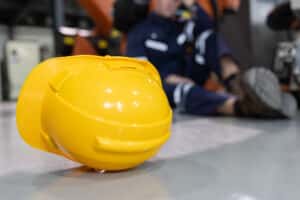
WorkingNation, a nonprofit project that launched just a few months ago, will be educating Americans about the changing landscape of employment as automation spreads. It’s connecting groups and giving voice to those who’ve proposed solutions to help workers navigate our changing job market, according to Art Bilger, the venture capitalist behind the group.
“We’ve watched the Donald Trump and Bernie Sanders movements build: There are millions of people in pain, and it’s about jobs and the economy. It’s fear looking down the road,” Bilger said. “I decided that we should create awareness of these issues, and highlight the solutions being worked on today ― including where the jobs of the future will be.”
Last week, WorkingNation debuted its new docu-series examining these topics, which streamed on TIME Inc. websites. In the first episode, the series profiles families in Rochester NY impacted by massive layoffs at Kodak’s headquarters. Another upcoming episode will focus on Year Up, a nonprofit that connects low-income young adults to job training.
WorkingNation’s website also shares blogs and videos about what the future of jobs will look like in a world increasingly populated by robots.
Bilger explains that he launched this project because he recognizes the trend will “hit across the middle class: It clearly impacts the bottom 20 percent, but it also will impact middle- and upper-middle class,” he said. “The key message here is: We’re all in this together.”
Automation has already begun to transform a number of industries: Driverless trucks threaten to replace 1.7 million American truck drivers over the next decade. But it’s not just about blue-collar jobs. Even skilled “intellectual labor” like journalism is at risk as major news outlets increasingly use artificial intelligence to cover sports and even the elections.
Whether robots taking certain jobs is a real cause for alarm remains a matter of debate. The question is not whether automation will replace some jobs ― that is widely accepted already ― but rather who and how many will be affected.
Earlier this year, White House economists projected that low-income workers will suffer the worst, with the part of the labor force earning less than $20 per hour facing a high probability of losing their jobs to robots. The University of Oxford predicts the entire middle class may lose out as 47% of the U.S. workforce faces job loss to automation.
But the central question is: As robots replace some jobs, will newer technologies create other job categories that counterbalance that trend? Some economists say yes, others say no.
WorkingNation leans toward the negative, with its website warning of a “looming unemployment crisis” that could “eliminate jobs in virtually every field.”
Bilger says he can’t predict the future, but he feels that no matter what side of the debate you land on, there are undeniable realities about the changing job landscape and we all need to be prepared.
“I’ll be honest here, I don’t know what the unemployment rate will be,” Bilger said. “But whatever 20 years from now looks like, we need to be focused on how jobs are changing and what are mitigating strategies and solutions. If we don’t do these things, it will be far more dramatic to the negative than it would otherwise be.”
WorkingNation wants to get U.S. institutions of all types involved in the conversation – and in upcoming initiatives – to help students and workers succeed in the new job landscape.
It highlights nonprofits such as Operation Hope on its website, a group that provides financial literacy education to underserved communities.
Bilger also pointed to community colleges as a source for positive change, since schools can train students in fast-growing industries like healthcare.
Finally, Bilger believes we should look to corporate America for solutions. He points to Siemens Corporation, a global energy company, which has developed apprenticeship programs to offer to workers with associate’s degrees and certifications in skills the company needs, such as advanced manufacturing.
“I don’t think we can blame those developing technologies for all this ― tech advancement is core to society,” Bilger said. “But I do believe they can be one of the most important parties to develop solutions. Their businesses are dependent upon it, and they have great resources, financial and human, to throw at it.”




